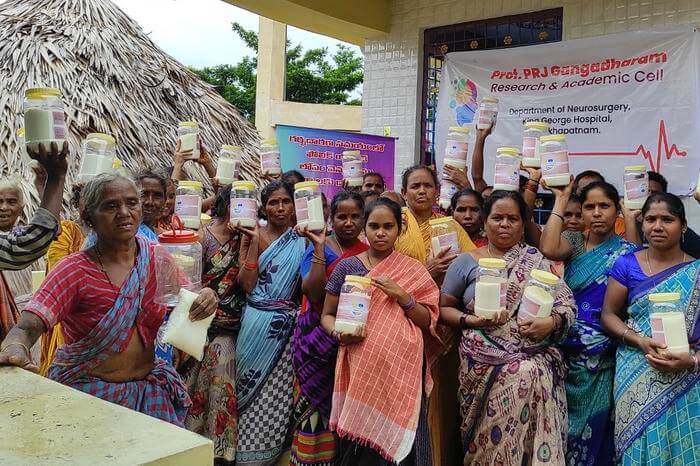ATLANTA — Folic acid fortification became a requirement in enriched grain products in 1998 to reduce the prevalence of neural tube defects in babies. Needless to say, it worked! Now, a team of international researchers has shown that adding folic acid to salt could prevent birth defects, too.
Folate is crucial for a healthy pregnancy. Currently, the World Health Organization recommends that all women take a supplement containing 400 micrograms of folic acid daily, starting when they’re trying to conceive and through the first three months of pregnancy.
Folic acid and folate aren’t the same thing, although the terms are used interchangeably. Folic acid is the synthetic form of folate, while the latter is what is naturally occurring in food. Folate can be found in dark leafy greens and beef liver. Folic acid is found in most supplements and food products and has been shown to prevent neural tube defects in prior studies.
So far, folic acid has been added through mandatory staple food fortification in about 65 countries. Still, over 100 countries have yet to fortify foods as a result of different challenges like limited capacity for large-scale fortification of staple grains in these areas or the absence of political will.
The new research included 83 non-pregnant women between the ages of 18 and 45 from four different villages in southern India. India has a high prevalence of neural tube defects. They consumed folic acid-fortified salt as part of their regular diet during a four-month period in 2022. This research shows that the solution might be more practical than previously thought. The clinical trial revealed that mixing folic acid into iodized table salt, based on today’s average level of daily salt consumption, increased serum folate levels among the women enough to prevent spina bifida and anencephaly. There was a 3.7-fold improvement before and after a four-month period of using fortified salt.
Study authors note that 260,000 births worldwide — or roughly 20 babies out of every 10,000 births — are still affected by spina bifida and anencephaly. These conditions contribute to a high number of stillbirths, mothers deciding to terminate their pregnancies, and premature deaths during childhood.

“We proved that folic acid can get into the blood through salt. Hopefully countries that have not already implemented fortification programs can now look at their infrastructures and realize that salt fortification is cheap and it’s really easy to add in the amount of folic acid needed to save lives,” says Jogi Pattisapu, MD, the study’s lead author and a neurosurgeon from UCF’s College of Medicine, in a media release. “It might just turn the salt a little yellow, but the participants did not mind and we know it works. What we need now is action.”
“Work was done there, by the Indian team, for their cause,” Pattisapu adds. “That was very important, and it is a powerful message.”
Although the United States already has a strong food fortification program, the researchers say the findings of this study could have a huge impact around the globe.
“This is a global goodwill involving the health of mothers and babies. We are making sure we apply the knowledge we have,” says Vijaya Kancherla, an associate professor in the Department of Epidemiology at Emory University’s Rollins School of Public Health. “These are preventable birth defects and once it happens, you cannot cure it. Surgeries and clinical care are expensive and largely not available in low- and middle-income countries. Due to that, most babies with spina bifida die globally. So, it is a human rights issue that everyone should be worried about and should strive to find alternate solutions that prevent these conditions from occurring in the first place, no matter where one is born. We show that salt has the potential to close the prevention gap now.”
The findings are published in the journal JAMA Network Open.

